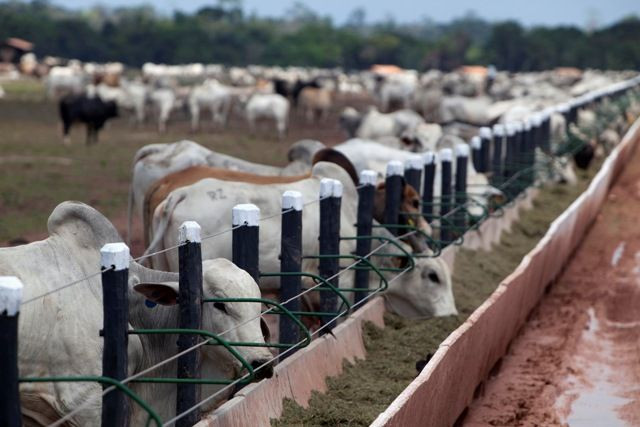Indonesia Reduces Cattle Imports From Australia; Raises Further Tension In Bilateral Ties

Indonesian government has declared to cut down on cattle imports from Australia. The decision came just weeks after former Indonesian foreign minister argued that the relation between the two countries has reached the lowest point, reported the Sydney Morning Herald. The sudden decision of reduction has strained the relations between the countries and the Australian Government has expressed discontent over the same.
According to ABC news, one of the spokespersons of Barnaby Joyce, the agriculture minister said although the decision disappointed them yet they respected Indonesia’s choice. The Indonesian authorities have decided to import only 50,000 head of cattle, which was previously 250,000. This sharp declined has taken the Australian Livestock Industry by surprise.
Alison Penfold, the chief executive of the Australian Livestock Exporters Council said that dropping the number to such an extent was highly unexpected and was pretty much uncalled for. She confirmed that this wasn’t a reaction to Australia’s asylum-seeking boat turnbacks policy and asserted that it involved production and supply issues in Indonesia. "It's got nothing to do with anything else,” she said. According to SMH, Treasurer Joe Hockey also dismissed any connection between the permits decision and the bilateral ties.
However, Agriculture spokesman Joel Fitzgibbon from the Opposition suggested that the present strenuous relationship between the countries could be a factor. Labor leader Bill shorten also expressed his concerns over the amount of cattle import and hoped that recent policies adopted by the Australian Government with regard to boat turnbacks has not affected the decision. He said political reason shouldn’t be driving the decision of reduction in imports.
Similarly Stuart Kemp, chief executive of Northern Territory Exporters Association (NTLEA) expressed his dismay and dissatisfaction over the low figures of imports. "This third quarter the long term average has been over 100,000 heads so to be below half the long-term average is obviously disappointing," he said.
He continuously repeated about the impacts it would have on the port of Darwin and said that NTLEA would push for a permit system that would be longer and reasonable. It has decided to request for a 12-month permit so as to organise the export in a better way and distribute the cattle more evenly, reported ABC.
Contact the writer on priya.shayani@gmail.com.





















